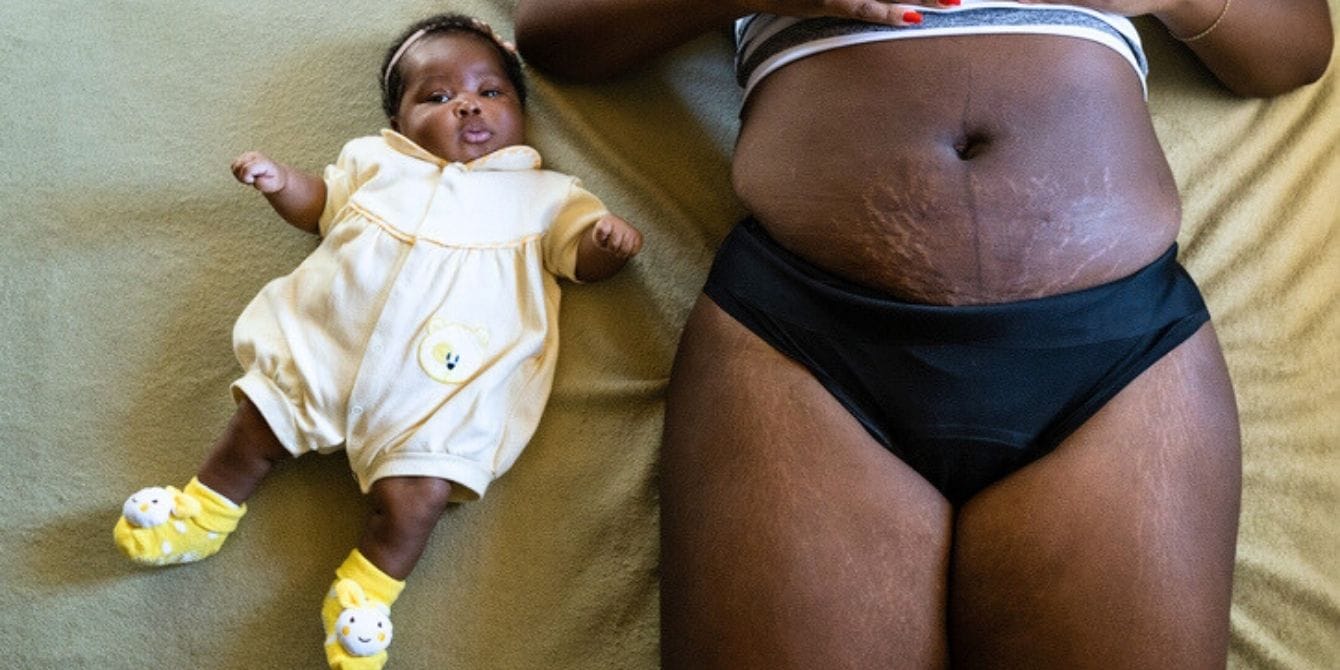Black women in the U.S. have long faced racial disparities in healthcare, with the maternal mortality crisis disproportionately impacting Black moms at a rate three times higher than their white counterparts. With these devastating stats in mind, researchers in New Jersey conducted a study to analyze the reasons why Black women face more complications during childbirth, and the results are truly eye-opening.
The 71-page report, published by the National Bureau of Economic Research, analyzed nearly one million births in 68 hospitals across New Jersey between 2008 to 2017, finding that Black patients were 25% more likely to have an unscheduled cesarean section than white patients, even at the same hospital, with the same doctor, and similar medical histories. Many of these C-sections were deemed unnecessary, and simply performed only when there were no scheduled C-sections taking place.
Researchers noted that two major factors — racial biases and financial incentives — were behind the disparity. C-sections provide higher payouts, both to individual doctors and hospitals, with the study’s authors determining causality between the two data points.
“These findings show that even the same doctors are treating Black patients differently,” wrote the authors — a trio of economics professors, Adriana Corredor-Waldron of North Carolina State University, Janet Currie of Princeton University, and Molly Schnell of Northwestern University.
But unnecessary C-sections pose major risks both to mom and baby, with C-section patients four to five times more likely to die or face serious complications. These risks disproportionately affect patients of color, especially Black women. Babies born via the procedure are more likely to experience respiratory complications in infancy and childhood, as the study’s researchers point out. Patients will also require a C-section for any future births, further increasing the risks to their and their children’s health.
The study, one of the largest of its kind, illuminates the biases faced by Black women not only in New Jersey, but nationwide. The disparity “is not explained by medical risk factors, it’s not explained by socioeconomic or things related with the socioeconomic status, but based on their race,” as Corredor-Waldron told CBS News. “It’s important that we are aware of these biases and start working, potentially, to start addressing this provider bias,” she added.
Tammy Murphy, the state’s First Lady, called the findings “wholly unacceptable and deeply disturbing,” adding, “We have long known that Black mothers are more likely to undergo unscheduled C-sections compared to white mothers, but this study confirms the historical, large-scale statistical racial disparities in delivery methods, without a correlation to medical risk. This research is critical to supporting the ongoing development of new initiatives that will continue to make a difference for families in New Jersey. We are thankful to the researchers for shining a light on the disparities we are working to eliminate. Racial biases and financial incentives should never drive medical decision-making.”
Point blank, no patient in the U.S. should ever face increased risk to their — or their child’s — health and well-being simply because of their race. Healthcare providers must do better for their patients to minimize harm wherever possible.

